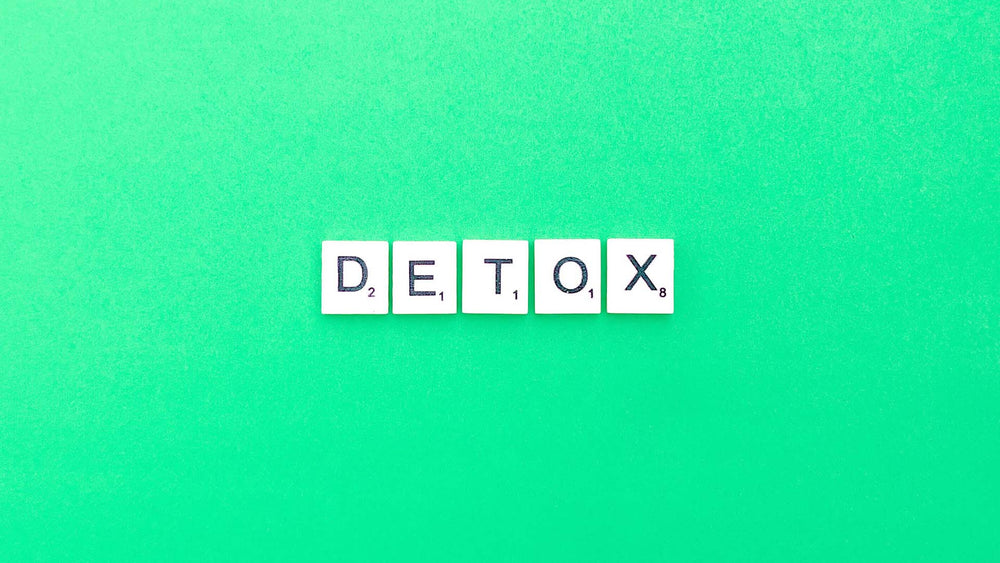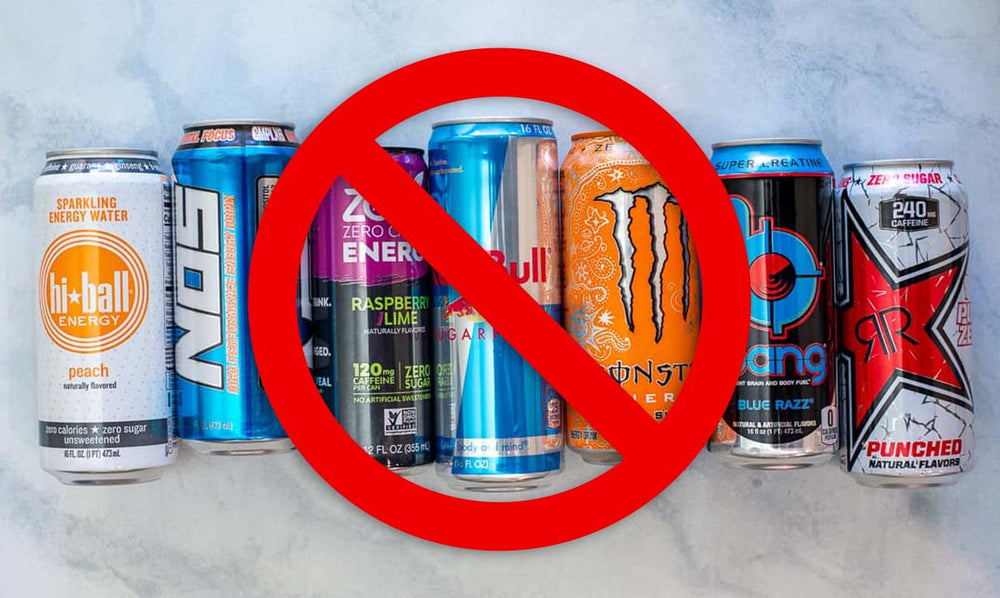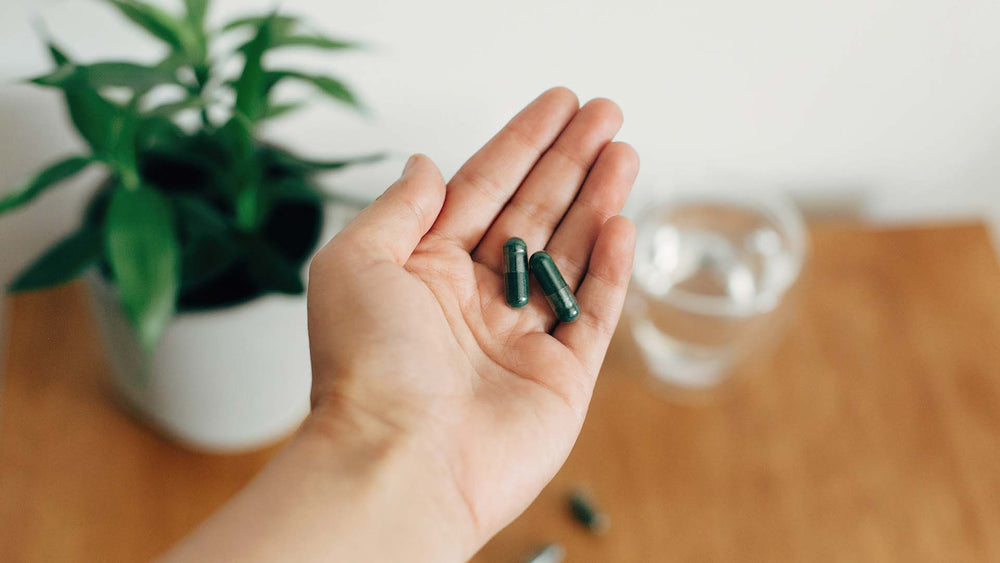If you want to lose weight or build muscle, you don't need to drink bodybuilding shakes or eat cardboard rice cakes all day. The best foods for weight loss and health are common and delicious. Fruits, vegetables, legumes, nuts, poultry and fish supply all the protein and vitamins you need – without the empty calories of processed foods. Lower your calorie intake, get lean and build muscle with these nutritious foods.
Chicken
Low-fat, protein rich chicken helps burn fat and builds muscle. Proteins contain amino acids essential to weight loss, tissue repair and many other body functions.
A four ounce serving of organic, pasture raised chicken has an astounding 97% of the daily recommended value of Vitamin B3 (niacin), 40% of Vitamin B6 (pyridoxine) and 70% of your daily protein requirement.
Fried chicken (and that includes processed chicken fingers and chicken wings) are high in calories from all that coating, frying and oil. You'll cut your calories by preparing chicken and other food at home. A skinless roasted chicken breast has 142 calories, but an original recipe KFC chicken breast has 320 calories.
Stick with organic, pasture-raised chicken, and buy from local farms when possible. It may cost a little more, but it's worth it.
Eat roasted, steamed or broiled chicken with veggies, brown rice or other side dishes. Try heart-healthy Greek-style chicken or chicken and rice stir fry with ginger.
Cashews
Crunchy cashews satisfy the munchies naturally, without the chemicals in candy and salty snacks. Instead of sugar and sodium, cashews offer magnesium, zinc, phosphorous and other high-value nutrients.
A quarter cup of plain cashews offers 98% of your daily allowance of copper (for stronger bones, blood vessels and more energy. The magnesium in cashews keeps muscles working at maximum speed, and, like all nuts, they contain antioxidants to keep your cardiovascular system healthy.
And plain cashews help you lose weight – or at the very least maintain your current weight. People who eat cashews and other nuts are 31% less likely to gain weight. So stock up on all types of nuts, including walnuts, peanuts, pistachio nuts and almonds – and enjoy them in moderation.
Make your own trail mix with cashews, other nuts, raisins, seeds. (Lay low on the dried fruit since it has lots of sugar and calories). Sprinkle cashews on salads and chop them up and add to soup. You can even use cashew butter to make a healthy hot sauce along with soy sauce, ginger, cayenne pepper, garlic and water.
Blueberries
All types of fruit offer Vitamin C, a low calorie count, and other health benefits, but blueberries are regarded as a superpower among fruits. You should eat 1.5-2.5 cups of fruit a day, depending on your age, according to USDA.gov.
With only 84 calories in a cup and health benefits that sound too good to be true, blueberries make a great snack or dessert. Blueberries offer antioxidants to reduce inflammation and prevent heart disease , and they offer dozens of other benefits, including
- Protection against DNA Damage
- Lower Blood Pressure
- Improved Memory and Cognitive Function
- Anti-cancer Properties
- Reduced Muscle Damage after Strenuous Exercise
If you have diabetes or pre-diabetes, blueberries help you control blood sugar with their low glycemic index (GI). This is due to bioactive compounds called anthocyanins, which enhance insulin sensitivity.
Choose organic blueberries when possible. They contain more phenol antioxidants and anthocyanins than ordinary supermarket blueberries, giving you more nutritional bang for your buck.
Enjoy a blueberry smoothie or add blueberries to plain yogurt (with flaxseeds and chopped nuts), or put them in corn flakes or oatmeal.
Broccoli
Broccoli is to veggies what blueberries are to fruit. This cruciferous vegetable is high in protein, B vitamins, Vitamin D, fiber, Vitamin C, Vitamin K, potassium, iron and Vitamins E,A and C.
Still need more proof of broccoli's nutritional benefits? It's loaded with the antioxidants zeaxanthin, lutein, and beta-carotene to fight cancer-causing inflammation. It also contains the flavonoid kaempferol, which has hypoallergenic qualities
Chicken breast with potatoes and broccoli is one the healthiest home-cooked meals you can eat- full of protein, antioxidants and B-vitamins. Just put frying, sauces and butter on hold. Steam broccoli to get the most nutrition and best taste. Add broccoli to omelets, pasta and salad, or make broccoli with garlic butter and cashew as a nutrient-rich side dish.
Kale
Kale, like its less trendy cousins spinach and broccoli, offers phytonutrients with anti-cancer and anti-inflammatory properties. A cup of raw kale has 33 calories, 684% of Vitamin K (you read that right), and 14% of Vitamin C.
Kale and spinach sort of look the same, and they're interchangeable in many ways, but kale has more protein and 4x the Vitamin C, Spinach has 25% more magnesium, more fiber and more iron.
Make a poached egg with kale and mushrooms, a kale omelet or add it to your breakfast burrito. At dinnertime, add it to lasagna or other pasta dishes. You can even make a kale smoothie with wheatgrass.
Tuna
A can of water packed tuna has 79% of the recommended daily requirement of protein. Researchers say eating tuna occasionally outweighs the concern about mercury. Pregnant women should avoid tuna, however.
Choose water-packed tuna instead of oil-packed. Substitute honey mustard or pesto for mayo as a sandwich spread. Store-bought honey mustard is low in cholesterol and saturated fat, but high in sugar. You can make your own honey mustard with this recipe. Pesto's made with olive oil, garlic, pine nuts, basil and protein-packed parmesan cheese. Try this recipe for a tuna and pesto sandwich
Dishes made with fresh ahi tuna include blackened tuna with mango salsa, marinated tuna steak and fresh tuna tacos.
Bananas
Get your post-workout sugars, electrolytes and vitamins from bananas instead of sports drinks. And bananas aren't as hard on your teeth. They help regulate blood sugar and suppress appetite by making you feel fuller.
A medium banana has 105 calories, and provides 1.3 grams of protein, 3.1 grams of fiber and 33% of the daily requirement of Vitamin B6. The heart-healthy potassium in bananas offers protection against strokes and Parkinson's.
Slice ripe bananas and add to cereal, oatmeal or yogurt or eat it as a snack anywhere, anytime.
Greek Yogurt
A cup of creamy fat-free Greek yogurt contains 20 grams of protein and 25% of the RDV of calcium. If you want to lose weight, eat a few cups of Greek yogurt a day. A study in the International Journal of Obesity showed that obese subjects who ate 3 servings of Greek yogurt a day lost 22% more weight than people who simply cut their calorie intake.
Greek yogurt and regular yogurt are probiotic foods, which means they contain live cultures for better gut health.
Probiotics increase the amount of good bacteria in your digestive system and help balance you pH. Some research shows they may even improve your mood.
Buy sugar-free, unflavored yogurt at your grocery store or health food store. You can mix yogurt with nuts and fresh fruit, or use it to make salad dressing, dip or for some super protein feast, Greek yogurt chicken salad.
Potatoes
When baked, boiled or steamed, potatoes are a healthy, low-calorie side dish, full of potassium, fiber and B vitamins. A small baked potato has 156 calories, and 3.47 grams of protein. Unfortunately, most people love to eat potatoes smothered with sour cream, bacon bits and other fatty toppings, or eat French fries. This undermines the potato's nutritional value. Dump the high-calorie toppings, and be sure to eat the potato's skin, which contains a bulk of the nutrients.
A naked potato tastes pretty bland to most people, but you can dress it up. Top it with Greek yogurt, or add garlic, sea salt with navy beans to up the protein content if you really want to build muscle, or make garlic mashed potatoes with olive oil.
Eggs
Next to water, protein is the most abundant element in our bodies, and a large egg offers 77 calories, 6 grams of protein and many other high-value nutrients. (More than half of an egg's protein is found in the egg white, so if you're worried about cholesterol in egg yolks, you'll still get a good amount of protein eating egg whites only.)
The vitamins and minerals in eggs include Vitamin B12, folate (Vitamin B9), Vitamin B5, selenium and Vitamin A. Eggs enriched with Omega 3 fatty acids, that's even better, as they have more Vitamin A and Vitamin E.
Eggs boost your immune system, and they have iron to give you more vibrant hair, nails and skin. The antioxidants lutein and zeaxanthin help prevent cataracts and macular degeneration.
Eggs are primarily a breakfast food, and Studies have shown those who eat breakfast eat less the rest of the day than people who skip it. Eggs are filling, and they'll help you eat less, even if you do skip breakfast. So enjoy an omelet, hard boiled egg or egg salad sandwich anytime!
Turmeric
Turmeric, the orange colored spice used Indian foods, does more than flavor your meals. It has all-around health benefits.A Chinese study found that curcumin, the active ingredient in turmeric, decreases the leptin and insulin resistance caused by high-fat foods. If it can lessen the negative impact of a junk food diet, imagine how it can help someone who eats a healthy diet.
Used in traditional Ayurvedic medicine and current alt medicine to treat toothaches, menstrual cramps, irritable bowel syndrome and other health problems, turmeric offers invaluable anti-inflammatory properties.
Like cayenne pepper, turmeric increases thermogenesis in the body, burning fat and naturally leading to weight loss. You don't need to order Indian take-out every day to enjoy the benefits of turmeric. Saute cauliflower or other vegetables with turmeric, use it to spice up chicken or fish, or make “Golden Milk” by adding it to whole or vegan milk.
Cinnamon
Cinnamon has been used as a medicine for thousands of years. Yes, it tastes great on French toast, but it also contains polyphenol antioxidants to fight inflammation. It cuts the chance of heart disease, and treats respiratory tract infections.
Trying to lose weight? Cinnamon prevents the body from storing as much fat. It delays the passage of food from the stomach to the intestines to make you feel full longer. Cinnamon burns abdominal fat, but binging on cinnamon won't get rid of your beer belly but it will help whittle it away.
If you use cinnamon on a regular basis, buy Ceylon cinnamon online. Too much Cassia cinnamon (the type sold in the supermarket) can cause liver damage.
Oats
The phrase “healthy as a horse” may have something to do with the oats thoroughbreds eat. Oatmeal of the whole oat/Quaker oat variety, not the instant flavored oatmeal in packets, offers dozens of health benefits. A cup of oats contains 26 grams of protein, 96% of the daily requirement for manganese, 64% of the mineral molybdenum, which is needed for sulfur balance and better antioxidant protection. Oats (or hulled oat kernels called grouts) provide these other benefits:
- Lowers cholesterol
- Reduces high blood pressure
- Improves digestion
- Increases satiety
- Enhances immune system
Add fruit, nuts to oatmeal, or try this high protein breakfast with Greek yogurt, chia seeds and almond milk to build muscle, fight fat and boost energy.
Garlic
An ounce of garlic has 42 calories, 1.8 grams of protein, moderate amounts of Vitamin C, Vitamin B6, manganese, selenium, calcium and 1 gram of fiber. You probably learned at a young age that garlic fights colds and the flu and reduces congestion, but this small, pungent member of the onion family offer many more health benefits.
Adding garlic to pasta and other dishes will:
- Lowers blood pressure
- Works as an anti-inflammatory to prevent disease
- Improves bone health
- Flushes out metal toxins in the body
- Loosens congestion caused by the common cold
- Helps prevent dementia and Alzheimer's
- Reduces post-exercise fatigue
Use fresh garlic, not garlic powder in soups, stews and pasta. Chop a few cloves of garlic and make your own garlic bread or make garlic chicken or garlic roasted salmon.
Salmon
This oily fish is even better for you than fresh tuna! Wild-caught salmon offers 236% of the DRV of Vitamin B12, 128% of Vitamin D, 78% of selenium, and 53% of protein ( 5 ounces of salmon have 30 grams of protein).
Salmon and other cold, oily fish are best known as a source of Omega 3 fatty acids. Omega 3's can do the following:
- Lower triglyceride levels
- Reduce depression
- Lower the inflammation that causes asthma
- Protect cognitive function
- Reduce symptoms of ADHD
- Improve cardiovascular health
Salmon is high in Vitamin B3 (niacin), Vitamin B6, choline, potassium and iodine. Eat fatty fish once or twice a week. Grill, roast or pan-sear salmon or make salmon salad. Serve with brown rice, potatoes, kale or broccoli for a super-nutritious meal.
Don't worry about counting calories to get skinny, build muscle or just feel better. Eat these high-protein, high-antioxidant foods (and similar ones) and you'll achieve your goals before you know it!
















